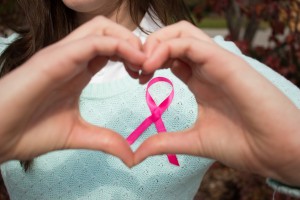
October is themed by orange pumpkins and Halloween festivities, but among fall colors, pink ribbons pop out to signal Breast Cancer Awareness Month.
Even though most BYU students and faculty understand the purpose behind these pink ribbons, many are not informed about available resources on breast cancer prevention, detection and support.
The National Breast Cancer Foundations and the Susan G. Komen Foundation are among the best resources to learn about breast cancer. According to both foundations, one in eight women will be diagnosed with breast cancer in their lifetime. To put this into perspective, approximately 34,000 people attend BYU, about half of whom are women. Therefore, roughly 2,125 women studying at BYU this year are likely to be diagnosed with breast cancer in their lifetime.
Julie Judd Gillman, the mother-in-law of BYU graduate Carlie Gluch, was recently diagnosed with breast cancer and chose to share her experience of her trying time.
“I never thought I would have breast cancer — never even considered it could happen to me,” Gillman said. “After a routine mammogram in July, I was diagnosed with invasive stage one breast cancer, and I had a lumpectomy on Aug. 9. I was lucky — they caught it early. My lymph nodes were clean, and it hadn’t metastasized.”
Gillman chose to do a nine-week chemotherapy treatment, which would cut her chances of the cancer returning within the next 10 years in half.
“I had the first round about three weeks ago, and the symptoms haven’t been too bad — a little nausea, a lot of fatigue and some bone pain,” Gillman said. “And my hair fell out. That has been the hardest part, but I keep reminding myself that it’s only for a relatively short time, and it will grow back.”
Breast cancer is unexpected, but there are many things people can do to catch breast cancer at its earliest stages. Self-examinations and regular mammograms are two effective ways to catching breast cancer. However, many individuals are hesitant to take these precautionary steps because of embarrassment, ignorance or misinformation.
“It makes me scared,” said Montana Beifuss, a nursing student at BYU. “When they tell you to do all those self-checks and stuff it is really hard to tell if anything is wrong when you have no medical expertise. It makes me feel like I need to get a mammogram, and then that makes me feel like that will give me cancer. I don’t know if it is safer to be safe, or safer to be sorry.”
A mammogram is an X-ray of the breast and currently remains the best way for early detection of breast cancer. The United States Preventive Services Task Force recommends women ages 50–74 years old to get a mammogram every two years. The breast compression during a mammogram cannot cause cancer to spread.
“The benefits of mammography, however, nearly always outweigh the potential harm from the radiation exposure,” according to the National Breast Cancer Foundation. “Mammograms require very small doses of radiation. The risk of harm from this radiation exposure is extremely low.”
The Susan G. Komen Foundation gives pictures and descriptions of many breast cancer symptoms so people can detect the cancer sooner than later. Signs of breast cancer include change in color or shape of the breast, hard knots or lumps, itchy or scaly rashes around the nipple and sudden discharge from the nipple. If any of these symptoms occur, all are advised to immediately see a healthcare physician.
Research done by Susan G. Komen found that some ethnicities are more prone to get breast cancer because they are more likely to carry a BRCA mutation, a genetic mutation found on either the BRCA1 or BRCA2 gene. Ashkenazi Jews, Hispanics and African American are at higher risk for breast cancer are Caucasians or Asian Americans. If someone has a medical history of breast cancer or worry they carry the BRCA mutation, they should get genetic testing.




